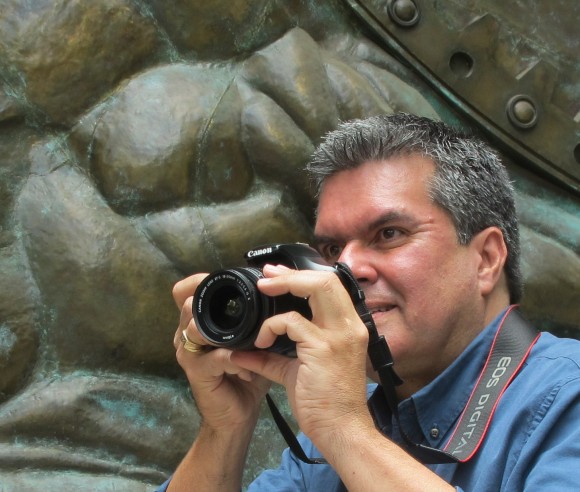For you all who are interested in what is happening in neighbor Honduras, I share with you a letter that my friend Carroll de Rodriguez has elaborated. Carroll is a member of the board of directors of the Centro de Estudios Económico-Sociales, and an Oped writer at daily Siglo Veintiuno.
We are very concerned about the situation in Honduras. The U.S. government´s vociferous and knee-jerk response in favor of Manuel (Mel) Zelaya leads down two bleak roads: civil war or the consolidation of the Chavez-style leftist populism that hovers over many Latin American countries. Neither result serves U.S. national interests. The future of Honduras is critical for the entire region.
The situation was misread! You can help by setting the record straight with your influential friends: members of Congress and Senators, members of the press, State Department officials and whoever you think can contribute to a more balanced U.S. policy.
The image of Zelaya, in pajamas, flown out of Honduras by the military, resembles but is not a coup d’état. The Supreme Court of Justice found the president guilty of breaking numerous laws, including “threatening the democratic form of government, high treason, abuse of authority and usurpation of public functions”. Any official who violates the Honduran rule of law “shall immediately cease performing the functions of his post and shall remain disabled for the exercise of all public functions during a period of ten years”, according to Article 239 of the Honduran Constitution. The Congress, Supreme Court of Justice, the Public Attorney´s Office, the Executive Branch and the Supreme Electoral Tribunal—all of which are democratic and legal institutions—were and remain united regarding the need for Zelaya´s removal.
Moreover, the acting president Roberto Micheletti and many current officials belong to the same party as Zelaya, the Partido Liberal de Honduras. They pursued other routes to relieve their former colleague of his duties, but ultimately felt themselves compelled to carry out this bitter, imperfect expatriation. They aren´t perfect and have made mistakes, but they sincerely believe they are saving Honduras from becoming another wild Venezuela. No member of the military holds a post that is not subservient to a civilian. So, the Constitution remains in place, the elected ruling party still rules, separation of powers and other legal safeguards for citizens are respected. This is hardly a military take over.
Zelaya represents populism, corruption, and cronyism. He wanted to perpetrate himself in power. Many Latin American constitutions include clauses against reelection precisely because of our history of dictators, a tradition antagonistic with alternation in power. Zelaya doesn´t seem to care about the wellbeing of Hondurans: he and his wife incite riots, such as the airport stunt. He has threatened to invade the country with Chávez´s help on Thursday. The third point in Oscar Arias´ terms for a negotiated solution seeks a pardon (amnesty) for Zelaya for the crimes committed leading up to his removal from office. That means that the Costa Rican president, and Zelaya himself, who agreed to the terms, admit that he did violate Honduran laws!
Power hungry rulers want to imitate Hugo Chávez, who rammed through his Bolivarian Revolution and changed the Venezuelan constitution in order to become a “democratic” dictator (through fake plebiscites and elections). Chávez is happy to finance their ambitions. If Zelaya is reinstated, all of the Chávez wannabes, like our own Alvaro Colom, El Salvador´s Mauricio Funes, Nicaragua´s Daniel Ortega, Paraguay´s Fernando Lugo, and of course, Bolivia´s Evo Morales and Ecuador´s Rafael Correa, will get a huge boost from their supposed former “enemy”, the United States. Jean Kirkpatrick could certainly give the new administration a few lessons!
The following articles best interpret the situation:
· Margarita M. Montes, Honduras Breaks Paradigm in Latin America.
· Cardinal Oscar Rodríguez Maradiaga, We Have the Right to Define Our Own Destiny Without Unilateral Pressures, July 6 statement
· Mary Anastasia O´Grady, Honduras at the Tipping Point, Why is the U.S. not supporting the rule of law?, July 6, 2009, The Wall Street Journal
· Mary Anastasia O´Grady, The U.S. Steers Left on Honduras, Why would Hugo Chavez expect Obama to help him?, July 20, 2009, The Wall Street Journal
I also recommend a letter sent to President Obama by Florida Congresswoman Ileana Ros-Lehtinen, which I am sure you can get a hold of.
The good news is elections were scheduled for November of this year, and Micheletti´s team has offered to push them forward. I know that the Obama Administration and José Miguel Insulza at the OAS won´t readily change their tune: they brag about upholding democracy at the same time that they open their arms to the 50-year Castro dynasty and the Chávez fans, and shut the door in the face of the Honduran people, who bravely upheld their Constitution! Yet tragedy may be averted if the U.S. would only adopt a disapproving but quiet stance, instead of its active meddling, and hold on tight until after the elections. Hondurans need all the help they can get in order to achieve a peaceful outcome.
I cannot begin to thank you for getting the word out about what is really happening in the region. I know you care about Guatemala, and therefore, about our neighboring countries. A prayer or two wouldn´t hurt either! Thank you again,
Carroll

